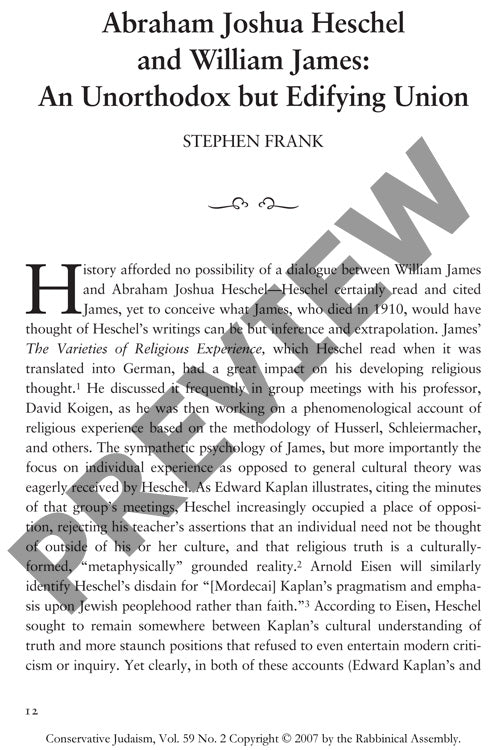Abraham Joshua Heschel and William James
Couldn't load pickup availability
Despite explicitly rejecting religious pragmatism, Abraham Joshua Heschel's religious philosophy shares remarkable convergences with William James's pragmatic thought, particularly in their emphasis on individual spiritual experience over abstract theory. A comparative analysis reveals how James's *The Varieties of Religious Experience* influenced Heschel's developing ideas, creating an unexpected intellectual bridge between these temporally separated thinkers. As a reformist pragmatist, James maintained the existence of objective truth while acknowledging human agency in its discovery—a framework that resonates deeply with Heschel's theological perspectives. The two thinkers converge in their preference for specificity over generality, their recognition of human creative capacity in revelation and history, and their opposition to physicalist reductionism. Heschel's conception of prophetic insight, his understanding of faith as faithfulness rather than mere belief, and his view of divine-human partnership in salvation align substantially with James's pragmatic meliorism and emphasis on human agency. In this synthesis, Heschel offers a spiritual response to James's implicit search for a religious worldview compatible with open-endedness and human creativity, while James's pragmatic methodology provides philosophical scaffolding for Heschel's passionate rhetoric. These connections suggest fertile ground for contemporary Jewish philosophy to engage with pragmatic philosophical methods while preserving traditional theological commitments.

More Information
-
Physical Description
-
Publication Information
Published 2007
ISBN
-
Publication Credits
Stephen Frank

